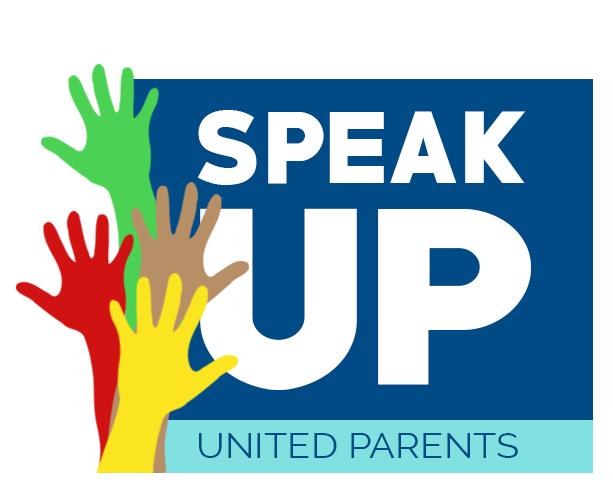Mental Health Help Needed Now in Hard-Hit Communities, Says Aunt of Latino Student Who Lost Mom, Dad and Grandma to COVID-19
/Ivin Dávila (center) lost both his parents, as well as his grandma, to COVID-19 in December and January. His aunt says families need mental health help to process tremendous trauma from the surge (Photo courtesy of Noticias Univision 34).
Ivin Dávila, a 15-year-old from Southeast Los Angeles, lost his mother, father and grandmother to COVID-19 in the span of a month this winter. Ivin, the only child of immigrants from Mexico City, is now struggling to get through his ninth grade year at LAUSD’s Maywood Center for Enriched Studies while living with his paternal aunt.
Martha Davila, who now has custody of her nephew, is calling for schools to start providing “mandatory” mental health assistance for students in communities severely impacted by the pandemic. The winter COVID surge devastated Latino communities in Los Angeles, and the emotional fallout from the trauma is just starting to become clear for survivors like her nephew, whose young life permanently and dramatically changed.
“I think he’s beginning to realize his loss. He’s beginning to act up, and showing a defensive behavior, particularly with school, not turning in his assignments, failing academically,” Davila told Speak UP. “He’s still attending his classes online and trying to find structure to continue. I’m all about structure with my daughter, so I plan to provide him with the same sense of security and structure.”
Davila’s daughter is a senior at Paramount High School. Davila took Ivin to live with her and her family in the city of Paramount, a couple of miles south of Maywood, where he used to live with his parents. “He’s starting to experience grief as he enters this transition to his new life. We’re all adapting.”
Ivin has told his aunt he wants to return to MaCES as soon as schools can reopen. But after all the suffering the family has experienced during the pandemic, Davila will not allow her nephew or her daughter to return to in-person classes soon.
“I think there’s nothing schools can do to keep our children 100 percent safe,” she said. “And at their age, it’s very challenging for them to understand the seriousness of it or to follow rules. They are teenagers. They test limits. Some don’t follow rules at home, so what makes you think they will do it at school?”
She says she may change her mind and consider sending them back once all teachers get fully vaccinated, and she can see for herself that the vaccine is effective in diminishing the risk of infection in the coming months.
What Davila believes should not wait any longer is schools offering mental health assistance and social-emotional workshops for families in the hardest-hit communities -- not just for the students but for entire families.
Last month, the American Academy of Pediatrics Southern California Chapter, which represents 1,500 pediatricians, issued a statement highlighting the suffering of California's children and the negative impacts of prolonged school closures, including anxiety and isolation.
“The prolonged physical absence of our children from the classroom continues to accelerate educational inequities and the negative impacts on the emotional and mental health of all students,” the statement said. “Suicidality among teenagers is now an active area of investigation.”
Davila believes that mental health education and support is particularly needed in the immigrant communities because of a common stigma surrounding mental health issues.
“We need to understand that we all need to support each other. We need more education about it,” said Davila, who was born and raised in Mexico City and currently works as a long-term care provider. “Because of those paradigms that we were raised with, we don’t really reach out for help. That’s why I think those support sessions or workshops should be mandatory for all families to educate everyone. Education is the key for everything.”
After weeks of school closures last year, Los Angeles Unified launched a hotline to help students and families dealing with fear, anxiety and other socio-emotional challenges related to COVID-19.
“The absence from school creates hardship – loss of stability and friendships, loss of learning and loss of a big part of our students’ social safety net,” Superintendent Austin Beutner said last April, when the district launched the mental health hotline. “Their world has been turned upside down, and we need to make sure students have the support they need.”
The LAUSD mental health hotline (213-241-3840) is operated by counselors and mental health professionals to provide support in both English and Spanish. It is open 8 a.m. to 5 p.m. on weekdays. Teachers can also call and get advice on how to connect their students to services. Direct questions can also be sent to mentalhealth@lausd.net. And a resource guide on mental health for tips and workshops can be found here.
The district also continues to operate its COVID-19 hotline at 213-443-1300 to help families with questions about school operations, technology and other student-related matters.
The Los Angeles County Department of Mental Health also has a hotline for assistance and referrals for therapy covered by Medi-Cal at 1-800-854-7771 x211.
Additional help and resources can be found here.





